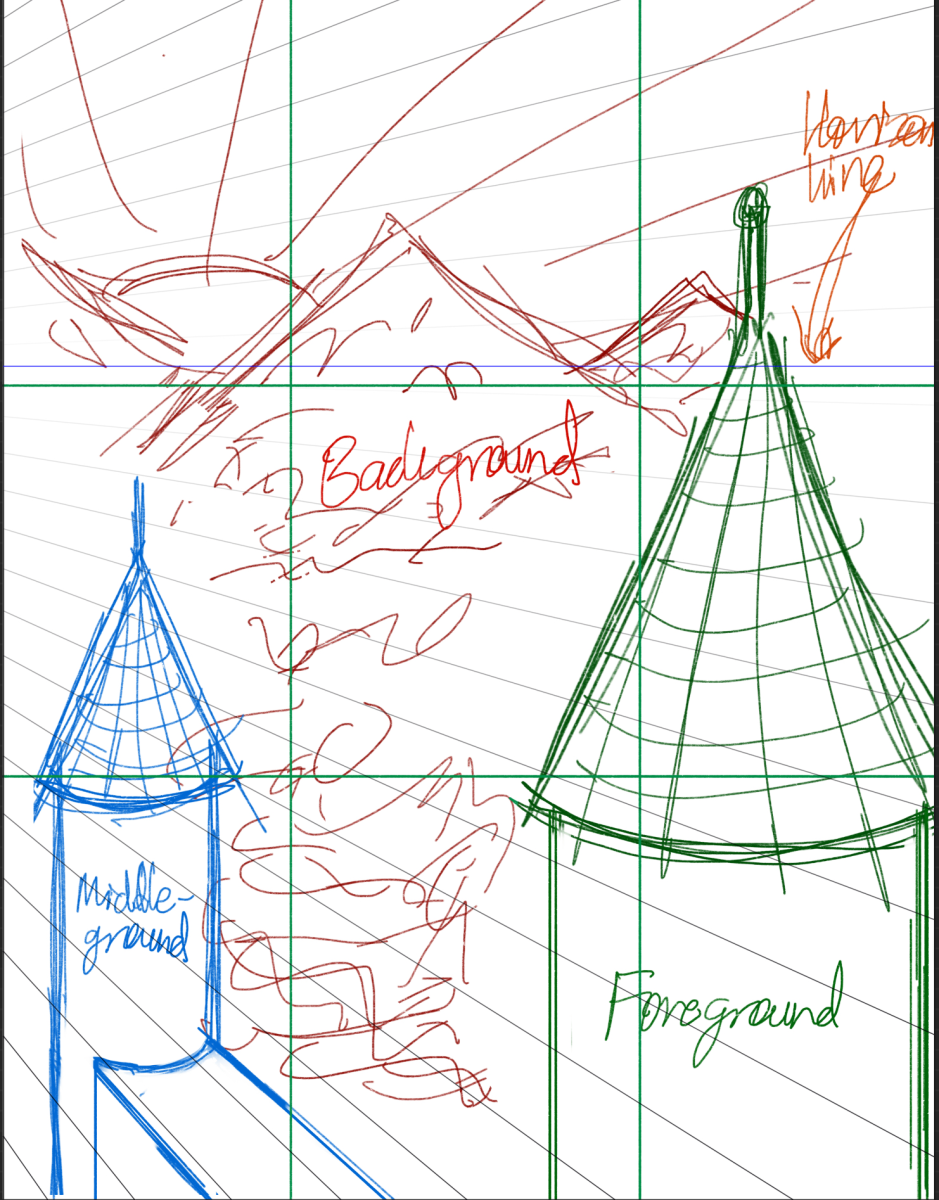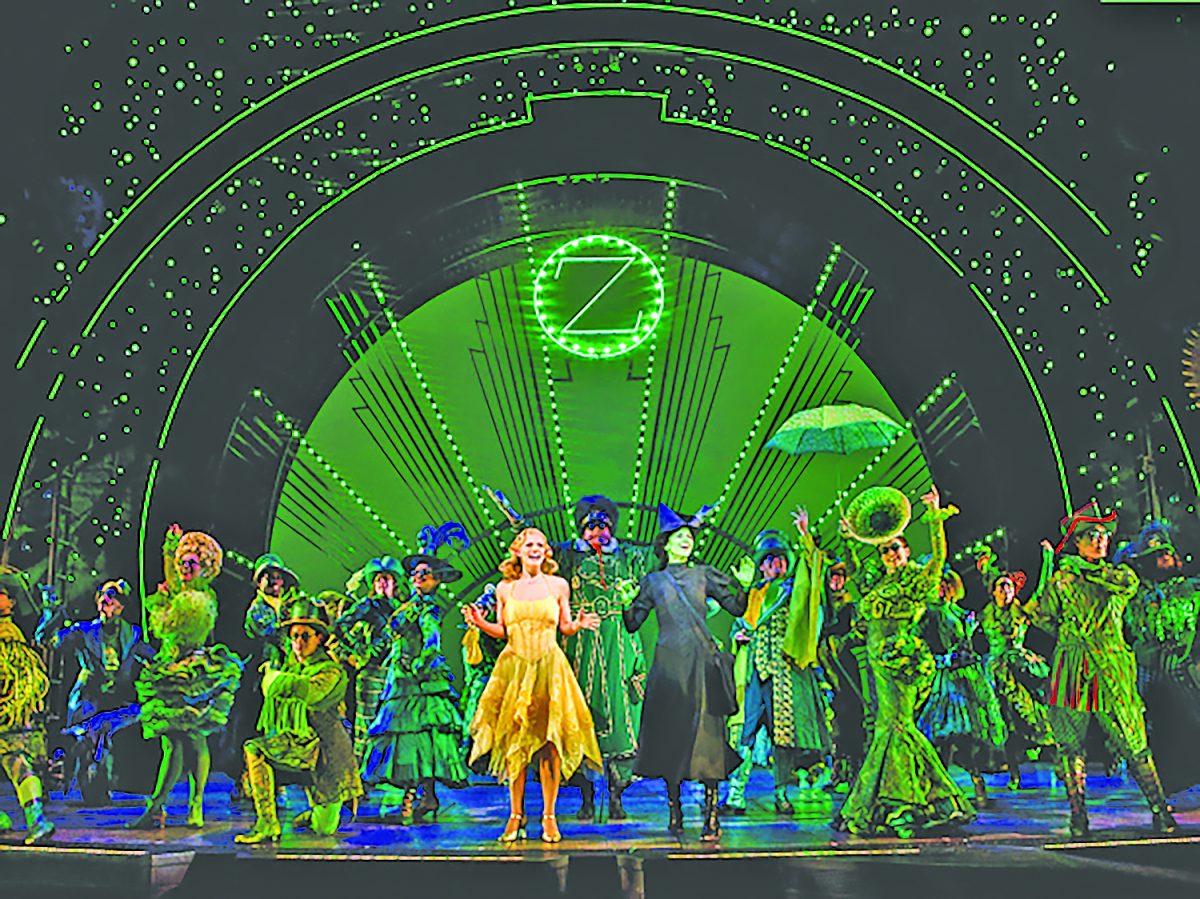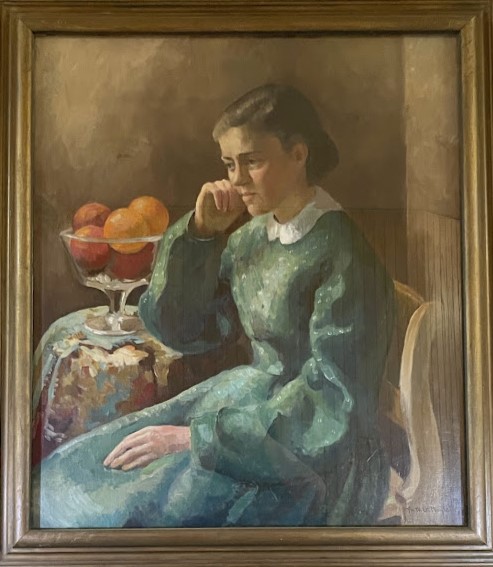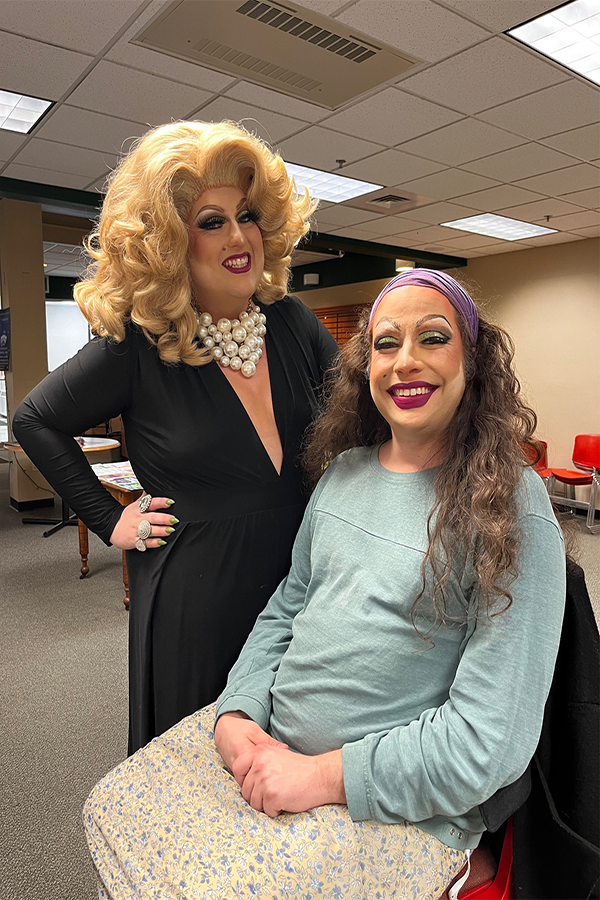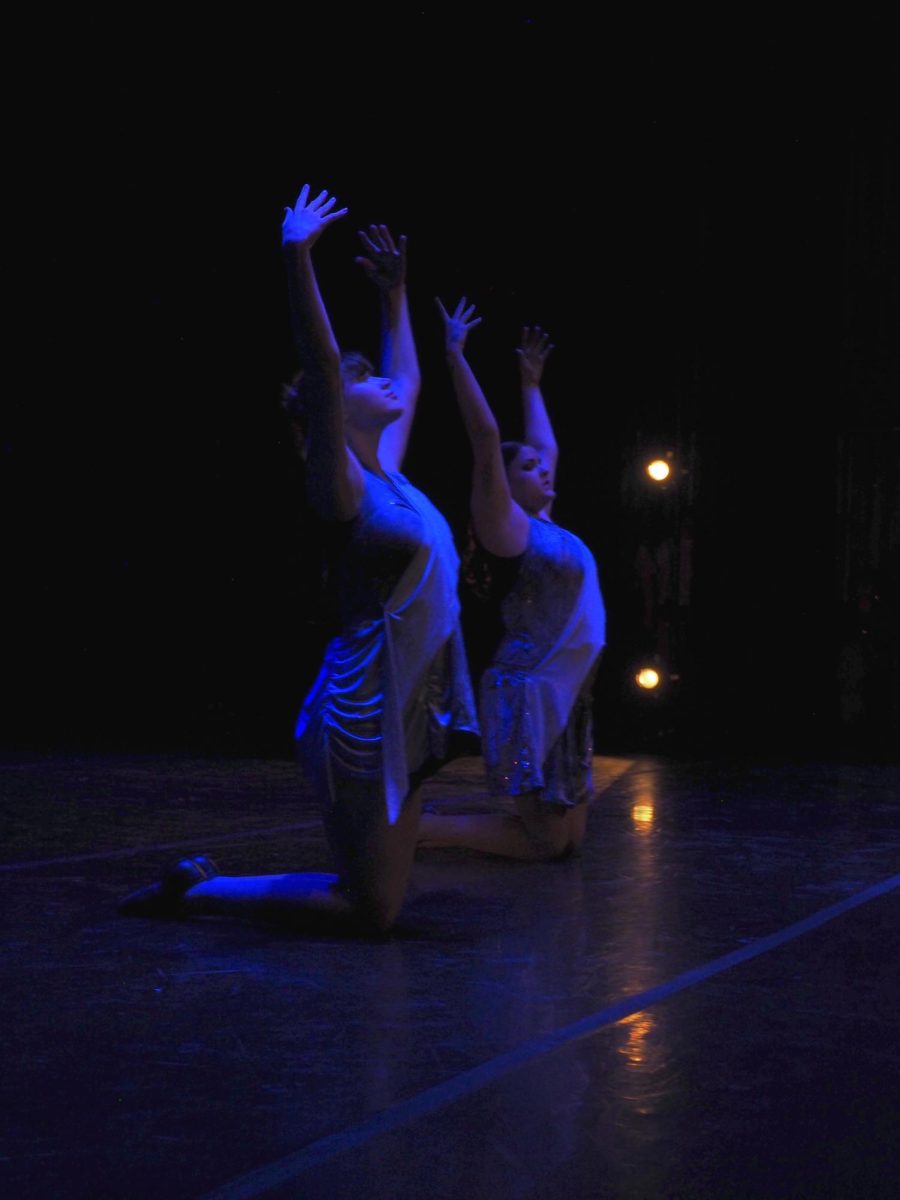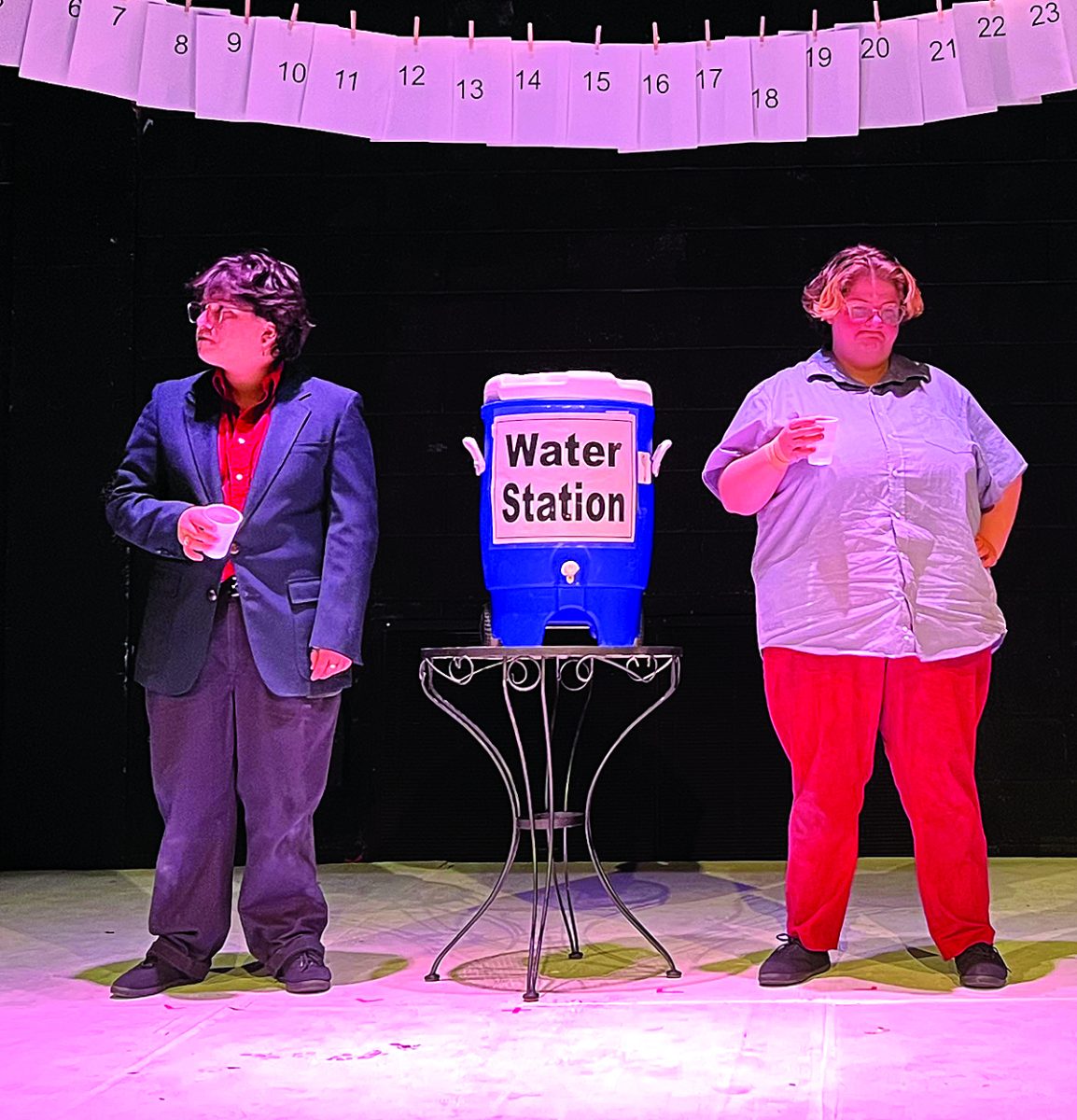Only one thing reeked about the Mar. 22 performance of Edward Albee’s “The American Dream”: audience members’ pants, half of which were promptly filled at the gargantuan volume of the doorbell sound effect.
All stinks aside, “The American Dream” is the best play I’ve seen in Dibden since “A Midsummer Night’s Dream” two years ago. Both are absurd comedies. Absurd comedies seem to make Dibden the fullest. The performances are full of passion. The audience is full of joy. Their pants are full of shit.
Oh – nope: that was just that darn doorbell sound effect.
“The American Dream” was Liz Thompson’s senior thesis play. She said she discovered the play while on the john, and was so riveted that she didn’t get off the john until she’d finished reading it. It showed. She gets the material, and her cast gets the material, and so the audience got the material, and we laughed and laughed and had a heck of a good hour-and-15-minutes.
It’s a one-act play set in a Fifties apartment, inhabited by Mommy, played by Taylor Brown, Daddy (Ethan McGovern) and Grandma (Jonathan Howard). Mommy and Daddy are the traditional Fifties family: vapid, their humanity shaved off by society. Grandma’s a handful: eccentric as a Kafka character and lively as a child.
Brown played Mommy like Kate Winslet by way of Amanda Bynes. McGovern played Daddy like Leo DiCaprio by way of tequila-drunk Daniel Day-Lewis. Those descriptions should suggest zesty, spot-on performances. They were.
Jon Howard’s Grandma is the flip-side of his role in “Little Women.” Here he’s delightfully absurd. There he was brutally sober.
His “Dream” role’s written to steal the show, a perfect pitch. Howard swung just right and followed through just as well. Home run. His performance was Mike Myers by way of Adam Sandler, seasoned with a dash of Diane Keaton.
But hark! The supporting cast! What support!
Dakotah Senesac played a young man who shows up out of the blue (it may not be clear from the get-go, but this is absurdism that makes frequent trips across the border, into surrealism), whom Albee used to summarize the play’s theme — in a scene that temporarily sucks the color out of the play by making its point so grayly and dully. (Overheard during the scene: one audience member loudly groaning, “Oh, god.”)
I don’t think anyone blamed the scene on Senesac, who acted like a chemistry lab James Dean.
Then there’s Victoria Doughty, who played Mrs. Baker – her JSC debut. Doughty doesn’t have the same kind of color that the leading players have – but she’s got her own thing.
She reminded me of Jessica Paré’s character from “Mad Men,” classé aspiring actress Megan Draper, if that character spent less time in the mall and more time in the basement.
That’s a good thing. Let me explain. Doughty doesn’t have the comfortable physicality that her co-stars have. No shock there: it’s her first play here.
But she exudes the sense that if one were to direct all her attention toward undamming one exploitative streamlet of spirit, if one were to give her a strange, curious, complexly eccentric role like Jeffrey Beaumont from “Blue Velvet,” she would spread flames across the Dibden stage.
Her performance in “The American Dream” was like surrealist explorer David Lynch’s take on cold, alienated, directionless Jean Seberg in “Breathless.”
In one scene, Doughty was laying on the couch, just after a simmering flirtation with McGovern’s character, a surreally openly erotic flirtation, right in front of his wife. Doughty lounged back on the couch, in character. Her gams shone like a woodland stream on a moonless night.
Then – she pulled up her dress. Not the character, but Doughty. I don’t think it accords with the character Albee wrote. But in that little action Doughty suggested a fascinating contrast that seemed to keep with the theme of society vs. human nature. Unintentional, probably. Screaming for Doughty to be cast in a play that dives into that contrast, definitely.
Closing thoughts: Brown and McGovern had the hottest sexual tension I’ve seen in Dibden, at least in front of spotlights; it was a nice set – looked like a blend of “Leave It to Beaver” and “Parents,” sickly yellow and as shallowly furnished and decorated as the character’s souls; and Thompson really knew what she was doing. And thus, so did her cast. And thus, so did we. And I liked the heck out of it.



